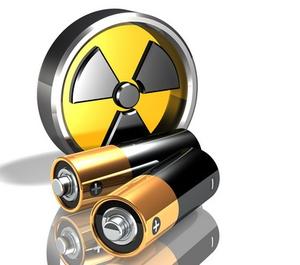An international group of scientists has published a study that could lead to the world’s first “nuclear battery,” a technology capable of providing a million times more portable power than today’s conventional battery.

Recent studies have opened the possibility to nuclear batteries becoming a reality. (Image via)
The study itself took place at the GSI accelerator laboratory in Darmstadt, Germany, where researchers worked on developing a better understanding of bismuth (Bi-212). Despite being unstable, the isotope was chosen because it displays a long-lived excited state with potentially far-reaching consequences.
The Bi-212 ions were first created by high-energy nuclear collisions. Next, they were focused into the GSI storage ring, where individual ions were observed as they circulated for several minutes at a time.
The ability to do this — that is, observing individual charged atoms over an extended period of time — is a capability exclusive to the GSI storage ring alone. To use it in observing the trapped energy state of Bi-212 is entirely unique to the physics community, and something that helped resolve a previous inconsistency with nuclear theory.
“The new understanding gives us confidence in the nuclear theory, which guides us to the next step of experimentation,” said Professor Phil Walker (University of Surrey, Department of Physics), one of the many contributors to this study. “It is hoped that this may, in the longer term, lead to the ability to control a form of trapped nuclear energy, with the ability to release the energy on demand.”
To purchase the full publication, head to the Physical Journal, Physical Review Letters.
Story via: surrey.ac.uk
Advertisement
Learn more about Electronic Products Magazine





